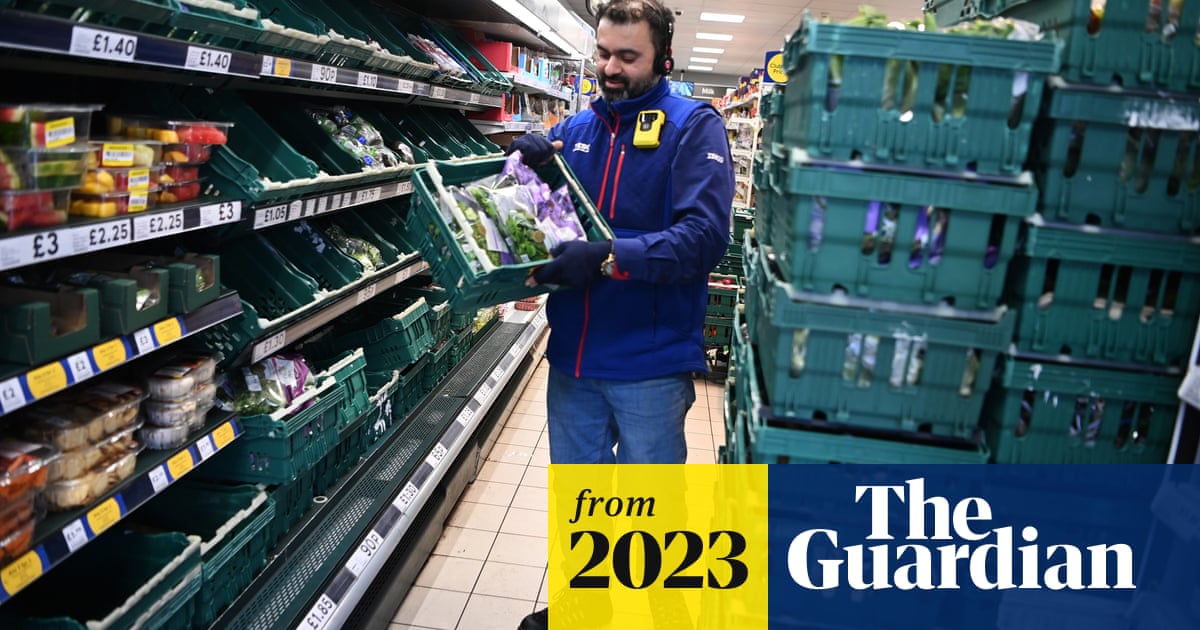What is behind the shortages?
Certain fresh vegetables and fruits are hard to come by in the UK as a result of an unfortunate combination of
poor weather reducing the harvest in Europe and north Africa, as well lower supplies from UK and Dutch producers hit by the jump in energy bills to heat glasshouses.
At this time of year, Britain relies on Spain, Morocco, Tunisia and Egypt for the bulk of salad imports. However, these crops have been affected by unusually cold weather last month, including intense night frosts, while tomato plants have also been damaged or killed by disease – in particular the tomato brown rugose virus.
Meanwhile, Britain and other northern European countries – particularly the Netherlands which is a big vegetable producer – have reduced how many crops they have planted over the winter,
after the Ukraine war sent bills soaring for the energy required to light and heat greenhouses and the cost of the fertiliser used on plants.
Faced with higher costs for glasshouse crops, some retailers chose to rely more heavily this year on sourcing from Spain and north Africa, leaving them more vulnerable to the weather-triggered shortages.
Are things worse in the UK than the rest of Europe?
It seems so. There are no reports of shortages in France and Germany and European shoppers have shared photos on social media of full supermarket shelves, in stark contrast to British supermarkets.
One issue is reduced output from British farms. The president of the National Farmers’ Union (NFU), Minette Batters, told the union’s annual conference on Tuesday that “domestic production of salad, including cucumbers and tomatoes, has fallen to its lowest level since records began in 1985”.
In the UK, a cold snap and frost before Christmas also damaged field crops including cauliflower, cabbage and carrots.
Batters has warned there might be further rationing of salad items to come, especially if growers’ energy bills remain high.
With many British tomato and salad growers having chosen to delaying planting in recent months because of economic uncertainty, UK production will not be able to pick up the slack for several weeks, and will probably begin later than in a normal year.
As a result, demand for Spanish and Moroccan produce to fill the gap has outstripped supply, and retailers cannot access as much food as they need, or face paying significantly higher prices for what is available.
So is Brexit to blame?
Most farmers and suppliers have said they do not believe the UK’s exit from the EU is the main reason for the UK’s empty supermarket shelves. However, many acknowledge that
Brexit – as well as the pandemic – have increased costs for growers, mostly as a result of having to pay higher wages to workers amid labour shortages.
Some importers argue the additional costs and bureaucracy created by Brexit have put the UK at the back of queue for supplies from European producers when crops are in short supply across the continent. It has also led to higher costs and paperwork, which can cause delays at the border – a particular issue with perishable produce.
Three big retailers are placing limits on shoppers on some produce lines. What is behind the rationing?

www.theguardian.com
So the main culprits are bad weather and higher energy costs due to the war in Ukraine and Brexit is only a minor influence of prices and shortages, mainly because of highr wages, which you as a socialist applaud. There just doesn't seem to be much basis for all the ranting and raving Labour is doing about the shortages.



